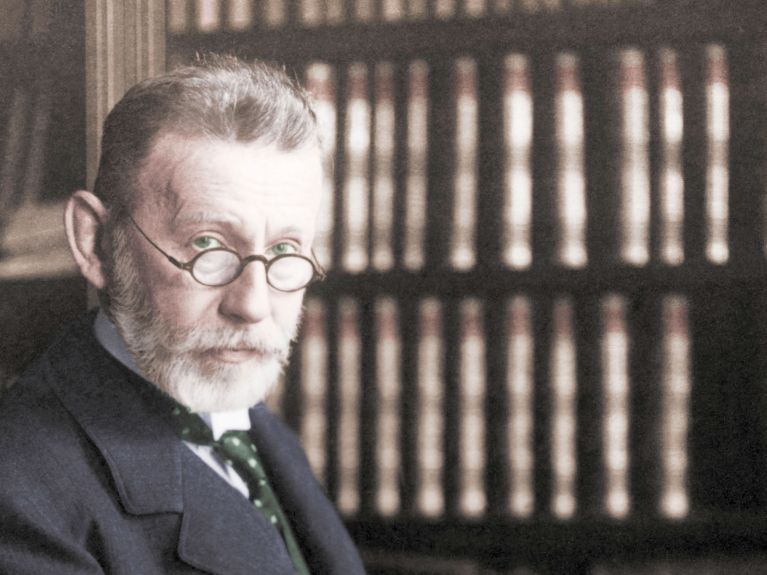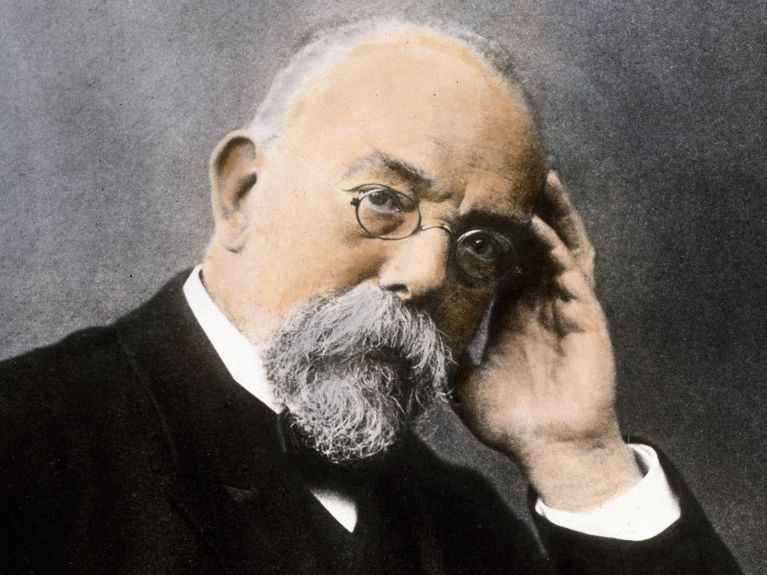Pioneers of german vaccine research
Robert Koch, Paul Ehrlich and Emil von Behring achieved great things. Here you can find out more about the three Nobel Prize winners.

Paul Ehrlich
(1854–1915), Immunologist
Paul Ehrlich studied medicine, but did not see his future at his patients’ bedside. The autodidact much preferred devoting his time to chemistry. He was Robert Koch’s assistant, worked with Emil Behring and was responsible for the beginnings of immunological research. In 1908, he received the Nobel Prize in Medicine for his work in immunology.
He explained the basic principle of immunity with his side-chain theory. He also used it to develop the first effective chemotherapeutic agent and is therefore considered the founder of chemotherapy. Ehrlich succeeded in curing syphilis with the drug Salvarsan. That brought him great international recognition.
Robert Koch
(1843–1910), Microbiologist

In 1876, Robert Koch succeeded in identifying the bacterium that causes anthrax in a poorly equipped home laboratory. This made him the first person to prove that a microorganism can cause an infectious disease. The previously unknown country doctor was called to Berlin, where he could work under better conditions and discovered the tuberculosis pathogen in 1882. This made him world-famous. In 1905, he received the Nobel Prize in Medicine for his discovery. He also identified the cholera pathogen during a research trip to India in 1883, but an Italian scientist had already described it before him. However, the two men did not know each other.
Emil von Behring
(1854–1917), Serologist

Early on, Emil Behring, a military doctor, became convinced that infectious agents should not be combated with exogenous chemicals, but with antitoxins formed by the body itself as a defence against bacteria. He was only first able to pursue this idea in Robert Koch’s laboratories in Berlin, where he developed the first antiserum against two feared infectious diseases, diphtheria and tetanus. This brought him the very first Nobel Prize in Medicine in 1901. He used the prize money to set up his own business and founded the Behringwerke in Marburg to manufacture serum. Biontech took over the site in 2020 and is now producing its new vaccine there.
You would like to receive regular information about Germany? Subscribe here:


